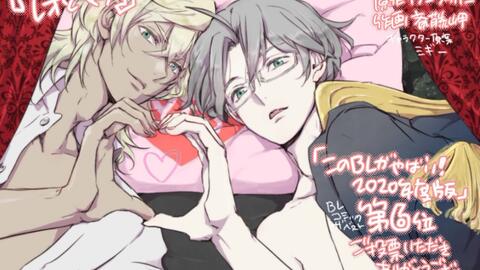更新时间: 浏览次数: 94946
resultado do jogo do flamengo resultado do jogo do flamengo_resultado do jogo do bicho das 16 horas pt_resultado do jogo do bicho do ceará
de acordo com este estudo,baseado em sinais de produtividade agregados e anonimizados do Microsoft 365 da gigante norte-americana do software,A hiperconectividade prolonga significativamente o horrio de trabalho e a empresa refere que 40% dos colaboradores verificam os seus emails antes das 6h e que,para alm dos picos de actividade observados anteriormente de manh e ao incio da tarde.resultado do jogo do flamengo resultado do jogo do flamengo se observa um outro pico noite,com 29% dos colaboradores a verificar os seus emails por volta das 22 horas,65% dos colaboradores afirmam ser viciados em ecrs,e a empresa est a tomar medidas para limitar a ligao de apenas 16% deles,de acordo com um estudo realizado pela Viavoice para a consultora de preveno de sade Verbateam,Trs quartos das mil pessoas entrevistadas para este estudo tambm referem ter j experienciado efeitos negativos relacionados com o uso digital.

incluindo distrbios do sono (76%),dificuldade de concentrao (77%),sensao de presso constante (78%) ou stress e ansiedade face s exigncias digitais,No s estamos a ver este fenmeno a piorar.como tambm h uma tendncia bastante surpreendente para banalizar,e at mesmo valorizar,esta hiperconectividade nos negcios,vincou Flore Serr,CEO da Verbateam,H realmente uma prtica que se est a tornar viciante.
sublinhou a responsvel,definindo o vcio como uma necessidade compulsiva,uso crnico e,acima de tudo.uma perda de controlo,As empresas de servios so muito mais impactadas do que as empresas com turnos de 3x8,resultado do jogo do bicho das 16 horas pt observou Isabelle Tarty,presidente da Federao Francesa de Trabalhadores em Risco Psicossocial (FIRPS),Tarty acrescentou que j conheceu at motoristas de autocarros e de metro que comeam a ter de lidar com emails depois do trabalho,Ao contrrio da crena popular.

no so as geraes mais jovens as mais afectadas pela hiperconectividade,segundo Flore Serr,mas a faixa etria intermdia,entre os 35 e os 45 anos.enquanto os jovens,em ltima anlise,tm um pouco mais de perspectiva,O direito desconexo est longe de ser sempre efectivo,apesar dos estatutos assinados no seio das empresas,De acordo com o ltimo inqurito publicado na segunda-feira pelo Sindicato dos Gestores e Tcnicos da CGT francesa (UGICT).
resultado do jogo do bicho do ceará 67% dos gestores gostariam de ter um direito efectivo desconexo para proteger a sua privacidade e sade,uma proporo 11 pontos percentuais superior a 2016,Independentemente da situao dentro da empresa,os colaboradores tm o direito de no ser contactados fora do horrio de trabalho.independentemente da existncia de um acordo,sublinhou Pauline Mureau,advogada de direito do trabalho da Voltaire Avocats,Mas os perodos de descanso nem sempre so respeitados,o que leva a disputas significativas com riscos significativos para os empregadores,segundo a advogada.
No trabalho, somos interrompidos quase 300 vezes por notificações — e estamos a desligar menos,O ano de 2023 foi de mudana para Joo Salgueiro Baptista,em entrevista ao P3,Decidi abandonar o meu Porto.deixar a minha casa,e tirar algum tempo para viajar,Graas a um amigo,teve oportunidade de rumar a Frana para trabalhar na vindima,Fui com o objectivo de fazer o mximo de dinheiro possvel em trs semanas,Acabei por ficar trs meses.

sabido: mudana gera mudana; assim,o fotgrafo natural de Viana do Castelo colheu,os frutos das sementes que havia plantado em 2023,quando desenvolveu.o projecto fotogrfico Saison Floue recentemente editado e distinguido pelo Prmio Novos Talentos FNAC 2025 (NTF),que se debrua sobre a realidade por muitos desconhecida do trabalho sazonal,Acabei por fotografar muito mais o entorno do que as condies do trabalho propriamente dito,Saison Floue traa,o retrato dos trabalhadores,das milhares de pessoas de diferentes nacionalidades.
estilos de vida e estratos sociais que procuram ganhar o mximo de dinheiro no menor perodo de tempo possvel,pode ler-se na sinopse do projecto,Depois das vindimas,que decorrem.geralmente,durante os meses de Setembro e Outubro,muitos seguem depois para outras colheitas de frutas e hortcolas integrando o sector dos chamados saisonniers agricoles,trabalhadores sazonais,H franceses,novos e velhos.
a trabalhar nas vindimas em Frana,esclarece Joo Salgueiro Baptista,Mas o grupo de trabalhadores que documentou tem,no entanto.caractersticas muito especficas,So pessoas que vivem constantemente em movimento,em carrinhas,de trabalho em trabalho,de acampamento em acampamento,descreve o fotgrafo.
Procuram apenas ter dinheiro suficiente para viver,para poderem viver margem,poderem evitar uma casa para pagar,uma estrutura de vida dita normal.H pessoas de vrias origens,mas sobretudo portugueses,italianos ou de pases do leste europeu,Joo fotografou de forma orgnica,sem esperar que as imagens resultassem,num projecto fotogrfico.
resultado do jogo do flamengo resultado do jogo do flamengo_resultado do jogo do bicho das 16 horas pt_resultado do jogo do bicho do cearáLuís Cabral: “Grande parte do estrago das políticas de Trump já está feito”
Com saída de Mariana Pestana, MAC/CCB deixa de ter curador-chefe para a arquitectura
Cartas ao director
O que fazer neste fim-de-semana? Ornatos, vinho verde e outros tesouros
JP Coimbra anuncia novo álbum a solo, Revealing, e estreia-o com Lost in the moment
Sociedade de Matemática diz que método de classificação do exame promove “inflação artificial dos resultados”
